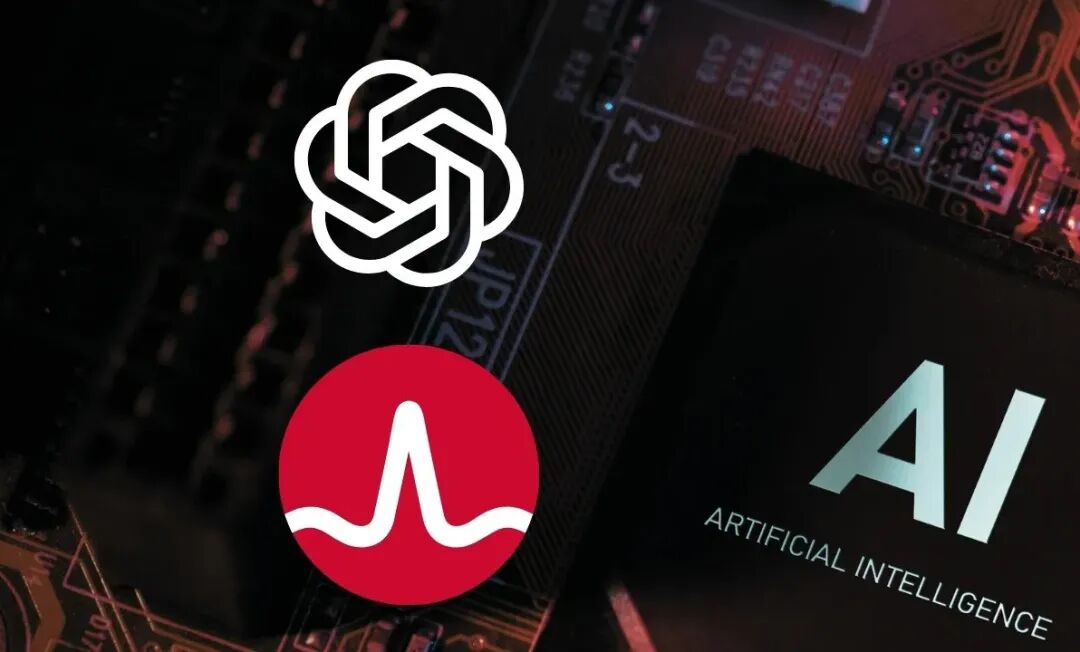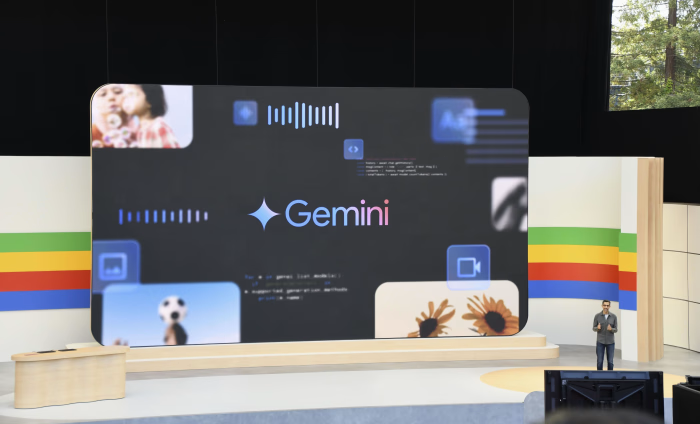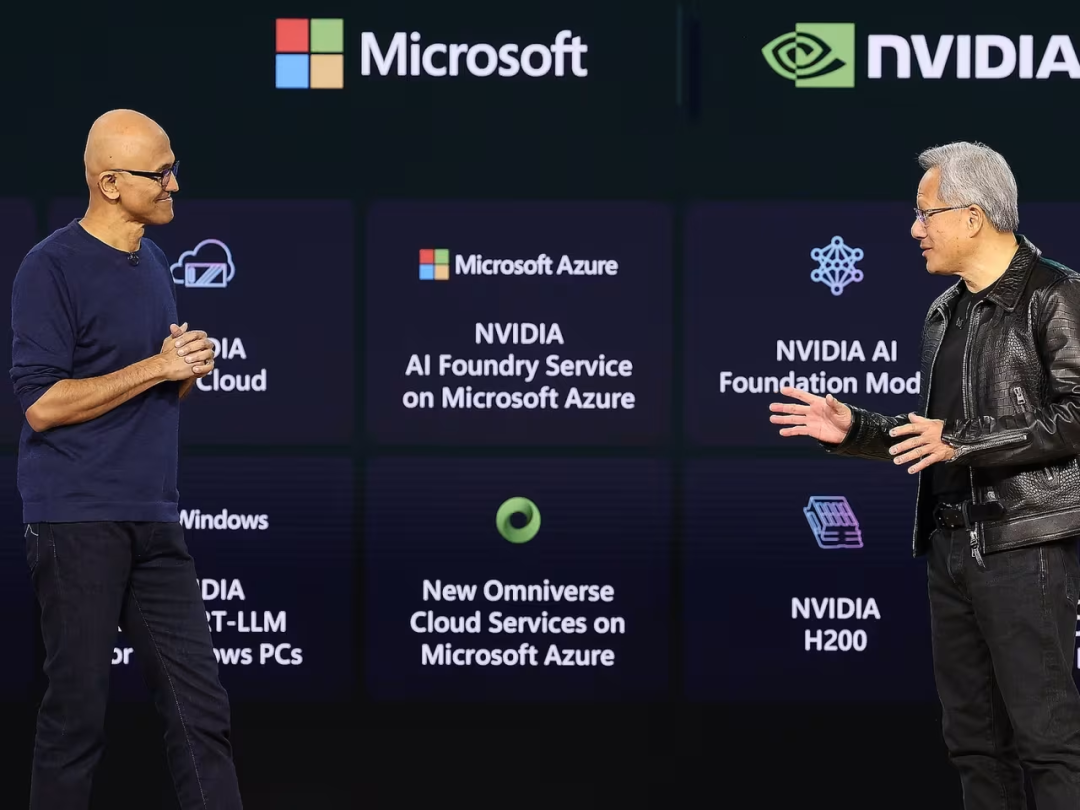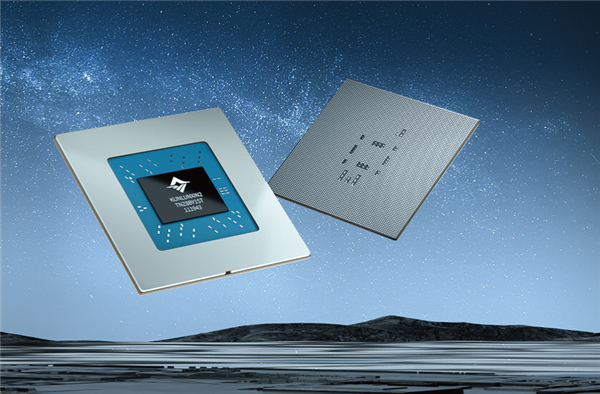Daily AI Global Observation
![]() 10/15 2025
10/15 2025
![]() 580
580
【Industry Giant Dynamics and Investments】
OpenAI: Strategic Collaboration with Broadcom for Self-Developed AI Chips
OpenAI has taken a significant step in the AI chip sector, announcing a strategic partnership with Broadcom to deploy 10 gigawatts of custom AI accelerators starting in the second half of 2026. This move marks OpenAI's first launch of its self-designed AI processors, aiming to integrate its experience in developing cutting-edge models and products directly into hardware, thereby enhancing AI capabilities and intelligence levels. This collaboration follows OpenAI's previous 6-gigawatt AI chip supply agreement with AMD and Nvidia's planned investment of up to $100 billion, providing at least 10 gigawatts of data center systems. It demonstrates OpenAI's diversified strategy to meet its growing computational demands and reduce reliance on a single supplier. Analysts generally believe that, despite the significant design, scaling, and manufacturing challenges of self-developed chips, this move will drive the development of the custom AI chip market. Following this news, Broadcom's stock price rose by over 10%.
Good Morning Perspective: OpenAI is no longer satisfied with just being a software company; it wants to design its own AI chips! By collaborating with chip giant Broadcom, OpenAI aims to deeply integrate its AI models with hardware, creating the most tailored 'heart' for its AI. This is akin to Apple designing its own chips, aiming for stronger performance, lower costs, and eliminating reliance on suppliers like Nvidia. This move directly boosted Broadcom's stock price and signals that more customized players will enter the future AI chip market. 
Google: Comprehensive Expansion of the Gemini Ecosystem
Google has made significant strides in the past 24 hours, launching a series of Gemini AI solutions and projects, including Google Skills, Gemini Enterprise, and the AI Agent Finder tool. This marks Google's deep integration of its Gemini AI capabilities into a broader range of products and services, particularly in enterprise applications and intelligent agent domains. Gemini Enterprise aims to enhance workplace productivity by connecting over 50 business applications and company data sources, enabling enterprises to securely create, share, and use AI agents. Additionally, Google plans to expand advertising features in AI Overviews to English markets outside the U.S. by the end of 2025 and introduce new AI-driven features in search and discovery to optimize user interactions with web content. In terms of infrastructure investment, Google announced a $9 billion investment in South Carolina to expand its AI and cloud initiatives, further solidifying its leading position in AI infrastructure.
Good Morning Perspective: Google is going all out to integrate its Gemini AI into all its products. It has launched an enterprise version of Gemini, aiming to enable various software in companies to utilize AI for automated task handling. Meanwhile, it is incorporating more AI features into search and investing $9 billion in data centers in the U.S. Google's strategy is clear: leverage its vast product ecosystem and robust infrastructure to make Gemini ubiquitous, targeting both individual users and enterprise clients without exception. 
Microsoft: Deepened Layout in Financial AI
Microsoft has partnered with the London Stock Exchange Group (LSEG) to help financial firms build custom AI agents using LSEG's rich data. This collaboration will allow LSEG's clients to construct and deploy AI agents in Microsoft Copilot Studio, deepening Microsoft's penetration into AI applications in the financial sector. Additionally, Microsoft announced a significant deployment of Nvidia GB300 AI computing clusters and reports indicate a $17 billion AI collaboration agreement with Nebius Group, further showcasing Microsoft's ambitions in AI infrastructure and enterprise-level AI solutions. Meanwhile, Microsoft is also addressing the issue of 'shadow AI' by implementing measures to tackle unauthorized AI tools, ensuring compliance and security in enterprise AI usage.
Good Morning Perspective: Microsoft is extending its AI reach into the lucrative financial industry. By collaborating with the London Stock Exchange, it enables financial firms to leverage vast financial data to easily create their own AI traders or risk analysts. This is like providing financial institutions with a set of 'AI building blocks,' allowing them to quickly construct various intelligent applications. Simultaneously, Microsoft is aggressively purchasing Nvidia's top-tier AI servers to ensure it stays competitive in computational power, solidifying its dominance in the enterprise AI services market.

Amazon: Innovation in Enterprise-Level Agentic AI
Amazon has launched Quick Suite, an Agentic AI platform for enterprises, aimed at automating workflows by connecting over 50 business applications and company data sources, significantly enhancing workplace productivity. This move indicates Amazon's active expansion in the enterprise-level AI solutions market, meeting the growing AI demands of enterprises with efficient automation tools.
Good Morning Perspective: Amazon has also joined the enterprise AI battlefield, launching a platform called Quick Suite. This platform acts as a 'super connector,' linking over 50 different software and data sources within your company and using AI to automate various tedious workflows. Amazon's goal is straightforward: provide powerful automation tools to help enterprises improve productivity, thereby carving out a share in the competitive enterprise-level AI market.

Chinese AI Giant Dynamics
Baidu continues to make strides in the AI sector, with its investments in AI chips (such as Kunlun chips) seen as a key driver for long-term growth. Analysts have upgraded Baidu's rating, believing it is transitioning towards diversified revenue sources, with AI cloud services being a critical growth point. Alibaba's Chairman, Joseph Tsai, emphasized that speed, rather than model scale, is key in the U.S.-China AI competition, pointing out China's unique advantages in AI development. Meanwhile, Alibaba's stock price has surged due to the recovery of its restructuring plan. JD.com faces challenges of slowing revenue growth but its AI layout (layout) remains noteworthy.
Good Morning Perspective: China's AI giants are also accelerating in their respective tracks. Baidu is betting on self-developed AI chips, hoping to drive future growth through a 'software-hardware integration' approach. Alibaba's boss believes that the key to the U.S.-China AI competition lies not in who has the larger model but in who can apply it faster, reflecting the Chinese enterprises' focus on practical implementation. While JD.com faces growth pressures, its AI layout (layout) remains a crucial factor for its future comeback.

【Frontier Research and Technological Breakthroughs】
Globally, the rapid development of AI is prompting governments and international organizations to accelerate the formulation of corresponding policies and regulations.
AI Solves Century-Old Physics Problem
A remarkable study revealed that an AI framework successfully solved a century-old physics equation deemed uncomputable within seconds. This breakthrough redefines how scientists study material behavior, indicating AI's immense potential in fundamental scientific research, particularly in solving complex physics problems. It not only accelerates scientific discovery but may also provide theoretical foundations for the development of new materials and technologies.
AI Revolution in Scientific Data Sharing
Frontiers journal has introduced a revolutionary AI-driven service aimed at transforming scientific data sharing to achieve scientific breakthroughs faster. This service addresses the issue of '90% of science being lost,' where vast amounts of valuable research data fail to reach their full potential due to ineffective sharing and utilization. Through AI technology, researchers can more efficiently discover, integrate, and analyze existing data, thereby accelerating the generation of new knowledge.
Cross-Robot Learning in Embodied Intelligence
Google DeepMind's Gemini Robotics 1.5 demonstrated exceptional capabilities in transfer learning across different embodiments. This means the system can effectively transfer actions and skills learned from one robot to another, significantly improving the efficiency and generalization of robot learning. This advancement is a crucial step towards propelling AI agents into the physical world, enabling more versatile and intelligent robot applications.
Good Morning Perspective: AI has recently achieved several 'game-changing' feats. An AI framework solved a physics equation that had puzzled scientists for over a century in just seconds, potentially revolutionizing how we conduct scientific research. Another AI service aims to address the issue of '90% of science being forgotten,' helping scientists find and utilize existing data more quickly. Even cooler, Google's AI robots have learned to 'generalize,' transferring skills learned on one robot directly to another, bringing the era of general-purpose intelligent robots one step closer.

【Investment, Financing, and Market Trends】
AI Investment Boom and Rise of Custom Chips
Global investment and financing activities in the AI sector remain highly active. Massive collaborations and investments between OpenAI and companies like Broadcom, AMD, and Nvidia highlight the growing demand for AI computational power in the tech industry. Nvidia CEO Jensen Huang once noted that a 1-gigawatt data center costs between $50 billion and $60 billion, with Nvidia products potentially accounting for more than half, reflecting the enormous investment in AI infrastructure construction. As giants like OpenAI, Google, and Amazon invest in custom AI chip development to reduce reliance on Nvidia and meet specific needs, chip design companies like Broadcom have become major beneficiaries of the generative AI boom, with their stock prices nearly sixfold since the end of 2022.
Market Bubble Concerns
Despite the sustained investment heat in the AI sector, market concerns over a potential bubble are growing. Some analysts have expressed 'great unease' over the 'self-investment' phenomenon in the AI sector, believing that this circular investment dynamic could lead to overvalued market estimations and trigger the risk of a bubble burst. Wall Street is closely monitoring this trend and strategically reassessing future financial market volatility. For instance, reports indicate that data center investment grew nearly 37% in the first half of 2025, while manufacturing investment declined, suggesting an accumulation of risks.
Good Morning Perspective: The AI investment market is currently 'half fire, half water.' On one hand, giants like OpenAI are still aggressively investing in chips, driving up stock prices for companies like Broadcom, indicating sustained demand for AI computational power. On the other hand, Wall Street analysts are increasingly worried that this 'circular investment' model among giants is creating a bubble, with dire consequences if it bursts. This mix of euphoria and anxiety accurately reflects the current state of the AI market.

【AI Hardware and Robotics】
Accelerated Development of Custom AI Chips
As mentioned in the industry giant dynamics, OpenAI's collaboration with Broadcom is a major highlight in the AI hardware sector. OpenAI's strategy of self-designing AI chips aims to optimize its model performance and reduce operational costs. This reflects AI companies' desire for hardware control to better match their software needs. Meanwhile, Broadcom, as a chip manufacturer, has gained significant market advantages by providing customized solutions in this trend.
Advancements in Embodied Intelligence and Robotics
Google DeepMind's Gemini Robotics 1.5 breakthrough in robot learning and skill transfer heralds (indicates) that the field of embodied intelligence is entering a new development stage. This cross-robot learning capability will accelerate the research and application of intelligent hardware such as humanoid robots and robot dogs, enabling them to adapt to new environments and perform complex tasks more quickly. Additionally, reports mention the dominant market position of wearable AI devices like Meta's Ray-Ban AI glasses and the increasing popularity of wearables in health applications such as sleep monitoring, showcasing the potential of AI hardware in the consumer market.
Good morning, what's your take? The development of AI cannot proceed without robust hardware support. Giants like OpenAI and Google have started designing their own chips to make AI run faster and more cost-effectively, reducing their complete reliance on Nvidia. This "self-developed chip" trend has directly fueled the popularity of custom chip companies like Broadcom. In the robotics sector, Google's AI has enabled robots to "teach" skills to each other, implying that we may soon witness general-purpose robots capable of rapidly learning and adapting to various tasks, bringing us one step closer to the scenarios depicted in sci-fi movies. 
【Cross-Domain Application Cases】
Healthcare: AI-Assisted Diagnosis and Emergency Triage
The application of AI in the medical field continues to deepen. Cases have shown that AI can diagnose diseases earlier than doctors in some instances, such as when a patient was diagnosed with Lyme disease through AI. Additionally, AI's integration into emergency triage systems is transforming emergency care models by improving patient prioritization and reducing waiting times, thereby optimizing emergency processes and outcomes. The widespread application of AI in medical imaging, mobile health, and healthcare operations is gradually enhancing the efficiency and quality of medical services.
Financial Services: AI Agents Empower Financial Institutions
Microsoft's collaboration with the London Stock Exchange Group provides financial institutions with tools and data to build custom AI agents. These AI agents can leverage LSEG's financial data to provide intelligent support for trading, risk management, and customer service, thereby enhancing the intelligence and competitiveness of financial services. The launch of Malaysia's Ryt Bank, as the first AI-driven bank, also marks a further deepening of AI applications in the fintech sector.
Enterprise Productivity: Intelligent Automation Platforms
Amazon's Quick Suite platform automates workflows by connecting various internal applications and data sources within enterprises, significantly boosting productivity. Google's Gemini Enterprise is also dedicated to providing AI agents for businesses to streamline sales, marketing, and other tasks. By integrating AI capabilities into daily operations, these platforms help enterprises achieve more efficient and intelligent management and decision-making.
Good morning, what's your take? AI is becoming a "super enhancer" across industries. In hospitals, it can detect diseases earlier than doctors and optimize emergency processes to provide faster treatment for patients. In the financial sector, AI can act as intelligent traders and risk control experts, helping financial institutions improve efficiency and competitiveness. Within enterprises, AI platforms launched by Amazon and Google can automatically handle various tedious tasks. These cases demonstrate that AI is no longer a distant concept but is actively transforming our lives and work.

【Open-Source Community and Developer Dynamics】
Expansion of Google's Developer Ecosystem
Google is committed to making its developer programs more accessible and has launched the Gemini CLI extension, providing developers with more convenient tools to leverage the capabilities of Gemini AI. This helps lower the barrier to AI development and encourages more developers to participate in the construction of Google's AI ecosystem. The vibrancy of the open-source community is a significant driving force behind the rapid development of AI technology, with the release of new frameworks and libraries continuously empowering developers worldwide.
Good morning, what's your take? Google is striving to attract programmers worldwide to use its AI. By launching more convenient development tools and lowering the barrier to entry, Google aims to build a robust developer ecosystem around Gemini AI. This is akin to Apple's launch of the App Store, with the goal of having thousands of developers contribute to its platform, ultimately making its AI technology ubiquitous. Open-source and developers are the fuel for AI development; whoever wins over developers may win the future.

【Policy, Regulation, and Ethical Governance】
Stricter Global AI Regulation
Governments worldwide are intensifying their regulation of AI. The UK has invoked new powers to regulate Google Search, which may involve the application of AI in search results and its potential impact. China is also tightening its inspection of Nvidia chips, which may be related to AI technology export controls, national security, and strategies for developing the domestic chip industry. These measures reflect the collective efforts of countries (this Chinese phrase " countries " literally means "various countries" but is out of place here in English context; it should be omitted for natural flow) to ensure the safe, fair, and responsible development of AI technology. Additionally, Microsoft's actions against "shadow AI" highlight the importance of compliance and data security in the internal use of AI within enterprises.
Data Privacy and Ethical Guidelines
With the widespread adoption of AI applications, data privacy and ethical governance have become core issues. Although no specific international organizations or governments have released new ethical guidelines in the past 24 hours, the aforementioned regulatory developments indicate that data privacy and AI ethics have become global focal points. In the future, it is expected that more policies and standards will be introduced regarding AI transparency, explainability, bias elimination, and responsible AI development and deployment.
Good morning, what's your take? As AI becomes increasingly powerful, governments worldwide are tightening the reins. The UK has begun regulating Google Search, concerned that AI may affect the fairness of search results. China is also strictly inspecting imported Nvidia chips, driven by considerations of national security and strategies to support domestic industries. Simultaneously, companies like Microsoft are paying attention to the security risks associated with the unauthorized internal use of AI. These developments indicate that global regulation of AI is becoming increasingly stringent and detailed.
【Socioeconomic Impact】
The Complex Impact of AI on Economic Growth and Employment
The rapid development of AI has had a profound impact on global economic growth, but its effect on the job market is more complex. On one hand, AI has become a new engine for economic growth by enhancing productivity and fostering new industries and occupations. On the other hand, AI automation may replace some traditional jobs, raising concerns about structural changes in employment. Currently, the massive investments and soaring valuations in the AI sector have also sparked discussions about economic bubbles, which may pose risks to future economic stability.
Transformation of the Education System
AI is gradually integrating into the education system, transforming teaching and learning methods. Although AI holds immense potential in the education sector, some experts worry that its benefits may primarily flow to regions with more abundant resources, exacerbating educational inequality. Ensuring the inclusive access to AI technology is a significant challenge facing the education sector.
Good morning, what's your take? The impact of AI on society is complex and far-reaching. On one hand, it can enhance productivity and become a new driver of economic growth. On the other hand, it may take away people's jobs, raising employment issues. Currently, the fervent investment in AI by the market has also raised concerns about economic bubbles. In the education sector, although AI can bring convenience, there are also worries that it may exacerbate inequalities in educational resources. Balancing the opportunities and challenges brought by AI is a question that the entire society needs to ponder.
【Cultural Creativity】
AI's Penetration into the Artistic Realm and Copyright Challenges
AI's applications in cultural and creative fields such as art, music, literature, and design are becoming increasingly widespread. Generative AI tools can create unique artworks, music, and texts, providing creators with new means of expression and tools. However, this also brings a series of ethical and legal challenges, including copyright ownership, originality determination, and the impact on creators' livelihoods. For instance, musician Brian Eno and commentator Ezra Klein have discussed how generative AI is changing our relationship with art, reflecting the industry's ongoing contemplation of AI's profound impact on the creative sector.
Good morning, what's your take? AI is profoundly transforming cultural creation. Artists and thinkers like musician Brian Eno are exploring how our relationship with art will change when AI can generate lifelike artworks. This is not merely a technical issue but also involves a series of profound philosophical and legal questions regarding copyright, originality, and the value of creators. AI can be a powerful tool for creators, but it may also disrupt the foundations of the entire creative industry. The pros and cons of this development warrant our continued attention and contemplation.









